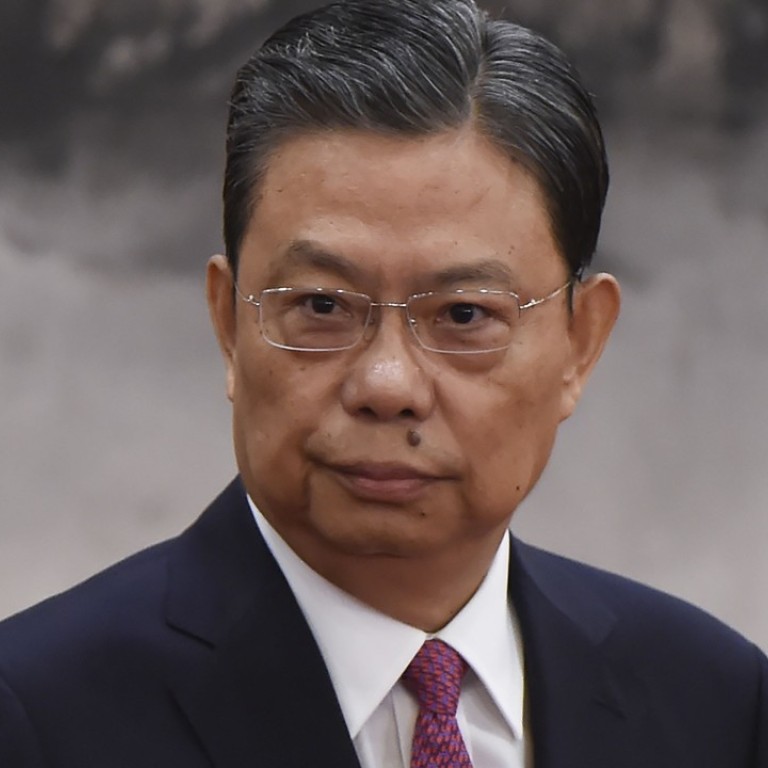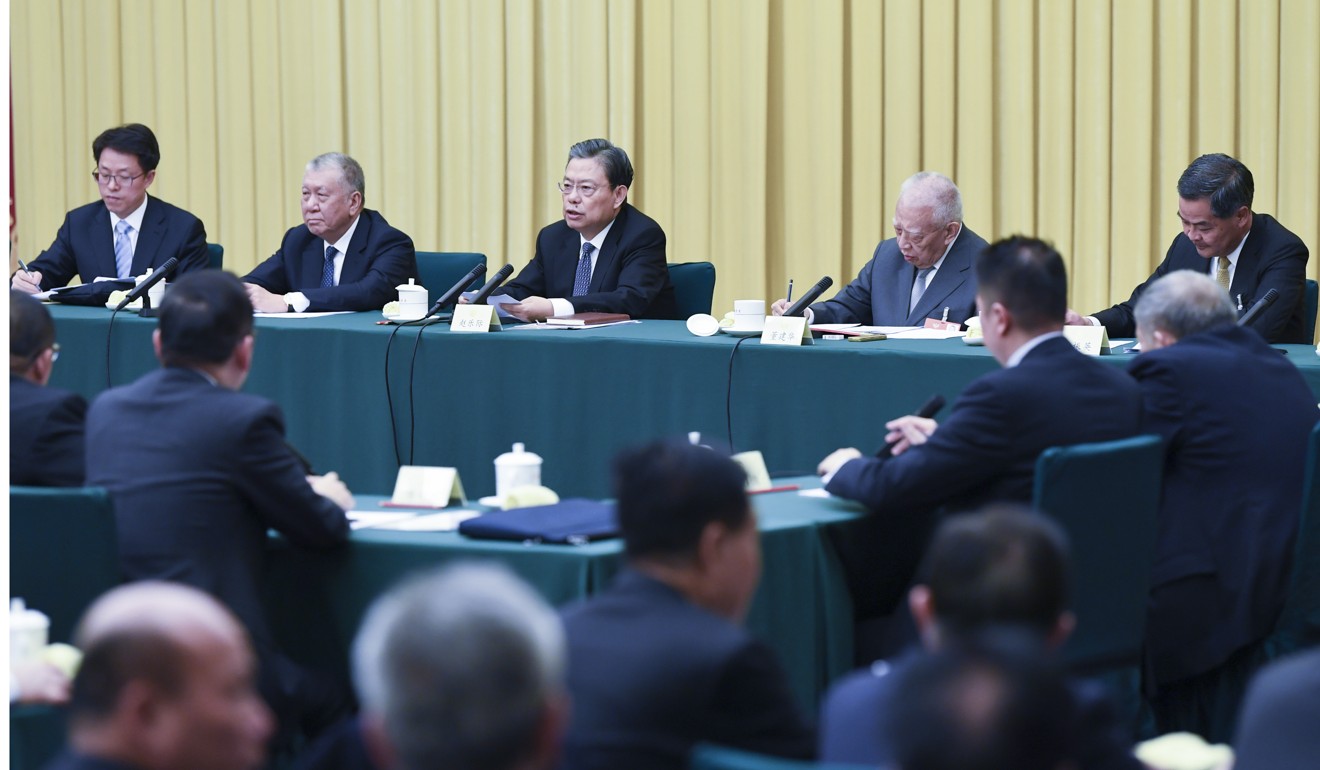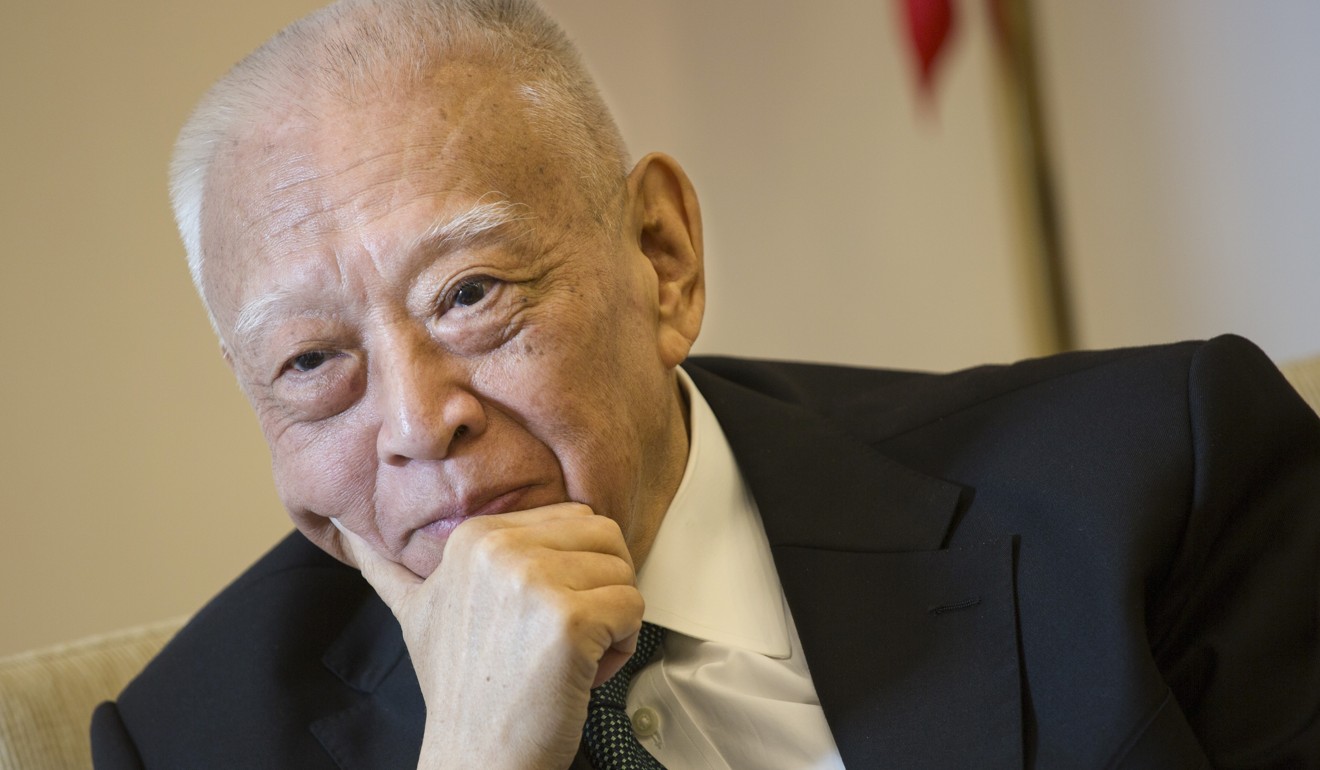
Tough warning to Hong Kong given by top Chinese leader, who urges recognition of Beijing’s sovereignty
State leader Zhao Leji tells local delegates that central government will not tolerate anyone using city’s autonomy as a cover to harm the mainland
A top Chinese leader on Sunday set out in no uncertain terms the need for Hongkongers to recognise Beijing’s sovereignty over the city, and urged advisers to the mainland to speak up and demolish harmful ideas instead of staying silent and letting them spread.

Marking the first time a top anti-corruption figure was addressing the delegates ahead of the annual sitting of the nation’s legislature, Zhao also warned that Beijing would not allow anyone to use the autonomy that Hong Kong enjoyed as a cover to infiltrate or sabotage the mainland. Such activities touched upon Beijing’s “bottom line”, he cautioned.
Zhao Leji: the younger gun playing second fiddle to Xi Jinping
“Using the high degree of autonomy to reject, fight and erode the central government’s comprehensive jurisdiction is absolutely not allowed,” he told the delegates.
Using the high degree of autonomy to reject, fight and erode the central government’s comprehensive jurisdiction is absolutely not allowed
Zhao acknowledged that Hong Kong’s governing principle of “one country, two systems”, in which the city had a high degree of autonomy while being part of the mainland, had been a “great achievement and a basic principle that defends Hong Kong and Macau’s long term prosperity and stability”.
But in a speech focused mainly on underscoring Beijing’s resolve in quashing any doubts over its supreme authority, he stressed the need to uphold the governing principle and the Basic Law, the city’s mini-constitution, properly, urging that it be “fully and accurately understood and implemented”.
“Every Chinese needs to defend the law, insist on principles, and dare to speak up. We must not let any fallacy occupy any space,” he said.
“[Hong Kong] needs to manage the relationship between one country and two systems well ... strictly act in accordance with the constitution and Basic Law ... and organically meld the central government’s comprehensive jurisdiction with [the city’s] high degree of autonomy.”
He also had a tough message for the delegates, among whom 50 from Hong Kong are new to the annual meeting in Beijing.
‘Calls for Hong Kong self-determination as unlawful as independence talk’
He told them they “need to perform their duties seriously in the implementation of one country two, systems”.
“On issues that concern national sovereignty ... delegates must show a clear and firm stance,” he said. “They must also attach importance on young people.”
After the firm words, Zhao struck a more encouraging note as he called on the city to seize the advantages of one country, two systems, giving them “full play” and “actively integrate into the country’s national development”.
Earlier, Tung Chee-hwa, vice-chairman of the CPPCC, also made a similar call asking delegates to be more proactive in speaking up on behalf of the country to improve Hong Kong people’s understanding of China.

Tung, Hong Kong’s first post-colonial leader, said that in the early years after the city’s handover from British to Chinese rule in 1997, CPPCC delegates were not supposed to be outspoken on the city’s affairs. But things had changed since then, he said.
“A lot of people in Hong Kong do not understand their country ... We need to help the city participate in national development,” Tung added.
A lot of people in Hong Kong do not understand their country
Reacting to Zhao’s speech, CPPCC delegate Jonathan Choi Koon-shum said his key takeaway was Beijing’s “comprehensive jurisdiction” over Hong Kong.
The phrase was used by President Xi Jinping at the party’s five-yearly congress in October last year, when he called for an “organic” or flexible melding of Beijing’s authority over Hong Kong with the city’s semi-autonomous powers.
In the last few years, during the CPPCC’s annual session, Hong Kong delegates were able to meet National People’s Congress chairman Zhang Dejiang, the state leader in charge of affairs in the city and in Macau.
As Zhang will be stepping down soon, delegates had expected to meet Wang Yang, the Politburo Standing Committee member tipped to be elected as the CPPCC’s new chairman on March 14.
Choi revealed that he had asked a mainland official why Zhao was chosen instead to meet them.
“The answer was that … it was just because state leaders are busy and some official positions for the next five-year term have yet to be filled,” he said.
Tung said Zhao’s attendance “fully showed the central government’s care for Hong Kong and Macau”.


